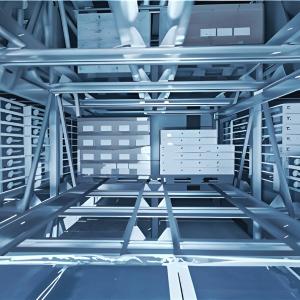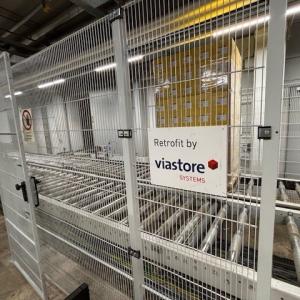
Automated frozen warehouse simplifies cold chain compliance
Efficient process and high storage density save energy costs
-
Ensuring the cold chain
-
Continuous monitoring of your stored goods
-
Lower energy costs due to consistent cooling
-
Higher storage volume
-
Higher turnover of goods with reduced stocks
Temperature-controlled warehouses can become real energy guzzlers if they are not carefully planned and managed. Temperatures as low as -40° F put a considerable strain on employees and limit working hours in the deep-freeze area to a minimum. In manual warehouses, a lot of cold is lost when the industrial trucks move in and out causing energy costs to rise. In addition, forklift trucks require more space for maneuvering because the racks cannot be built nearly as high.
The most efficient, and in the long term, the most economical solution is an automated cold or frozen warehouse. It enables a higher storage density, smaller storage area, constant temperature and thus significantly lower energy costs. Additional benefits are faster and therefore more frequent turnover of goods, the continuous and transparent monitoring of processes and stored goods, lower personnel and administrative expenses which all increase your profit.
Highest efficiency for your warehouse with a WMS
Sensitive goods, compliance with an uninterrupted cold chain, and temperatures well below freezing – working in a deep-freeze warehouse presents many challenges. The requirements for such a warehouse are just as demanding: cold-resistant technology, high storage density and energy efficiency, short throughput times with minimal error rates, and seamless tracking of goods.
The automated frozen warehouse is controlled and managed by a warehouse management system. The software maps all processes and enables a high level of transparency and traceability of the stored goods, including the management of batches, best before dates and serial numbers. In addition, the WMS ensures that every product is in the right place at the right time, from goods receipts to storage and picking to shipping. This keeps the cold chain intact, unnecessary goods movements are avoided and energy is saved.












